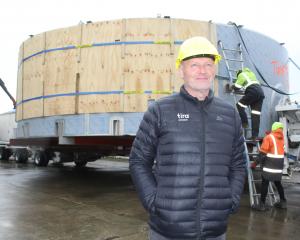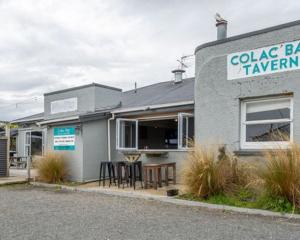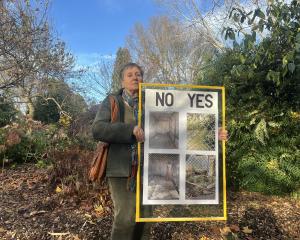Invercargill man Brian Cowie, five weeks ago hardly able to drag himself through the day, is eating, walking and exercising.
Dave Griffin, of Dunedin, who had his treatment in June, can now mow his lawns and potter in his garden.
They are among an estimated 20 New Zealanders who have travelled to the United States at their own expense for the treatment- an injection of a drug called Etanercept which, for an estimated 70% of patients, stimulates traumatised cells in their brains back into action.
Brenda Griffin said the treatment affected wellbeing as well as physical symptoms.
''When I first met Brian he had the same look Dave had before his treatment - a `stunned mullet' face and dead eyes. Now their eyes are bright and their faces are alive.''
The Griffins and Mr Cowie and his partner, Jo Parnham, are joining forces with some of the other New Zealanders whose lives have been dramatically improved by the treatment.
They are lobbying politicians, researchers and the Ministry of Health seeking approval for Etanercept to be administered to stroke sufferers in this country.
Ms Parnham said Etanercept was already approved for use here as an anti-inflammatory drug for people with rhumatoid arthritis and was being used in many countries to help reduce the effects of Alzheimer's, but she said this required ongoing injections.
''We want to understand from the medical people what the resistance is, because that's something we really can't get our heads around ... We know it has worked for us,'' she said.
Mrs Griffin said she had written to the Stroke Foundation, the Neurological Foundation and the Brain Health Research centres in Auckland and Dunedin, outlining her husband's improvement on Etanercept and asking them to consider allowing the treatment to be carried out in New Zealand.
She has also invited medical professionals to speak to those who travelled to Los Angeles.
Mrs Griffin said she agreed with Ms Parnham there was resistance from the medical profession to the drug being used as treatment for strokes, something she said was probably because no clinical trials had yet been carried out.
Associate Prof Steve Kerr of the Department of Pharmacology and Toxicology at the University of Otago said care needed to be taken by people seeking treatment with methods or drugs not scientifically validated.
Validation proves the drugs and methods were safe as well as ruling out the placebo effect or the impact of outside factors.
Prof Kerr said the confidence from undergoing treatment, travelling to another country and intensive nursing could make ill people feel better for a period, and independent research and study took account of those effects on patients and treatment.












